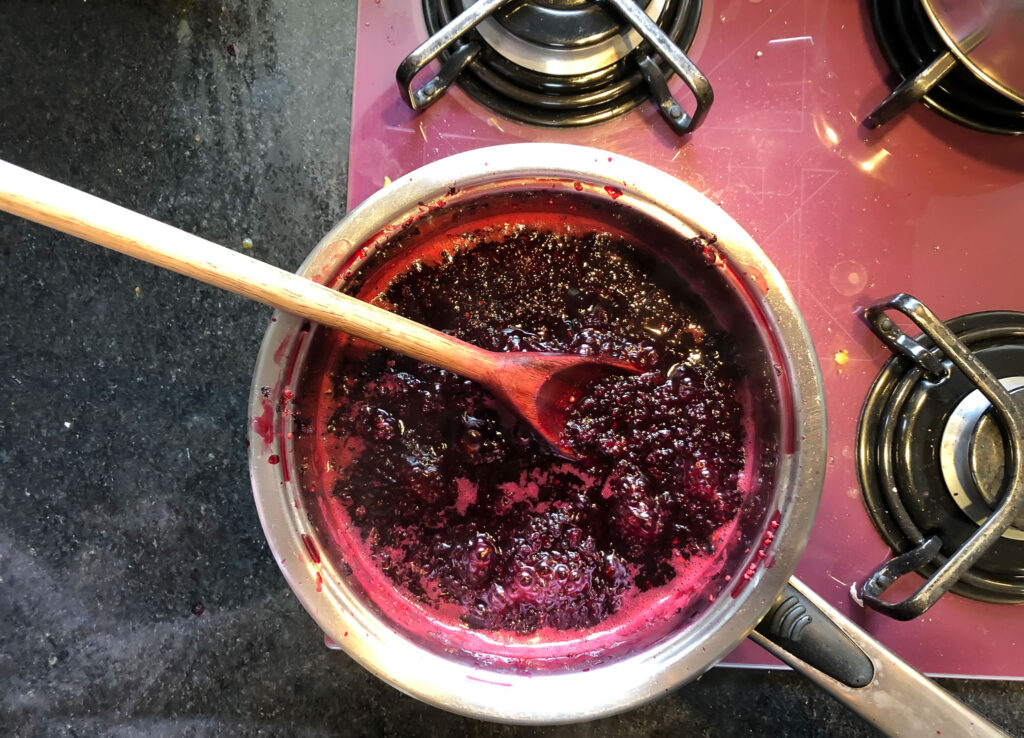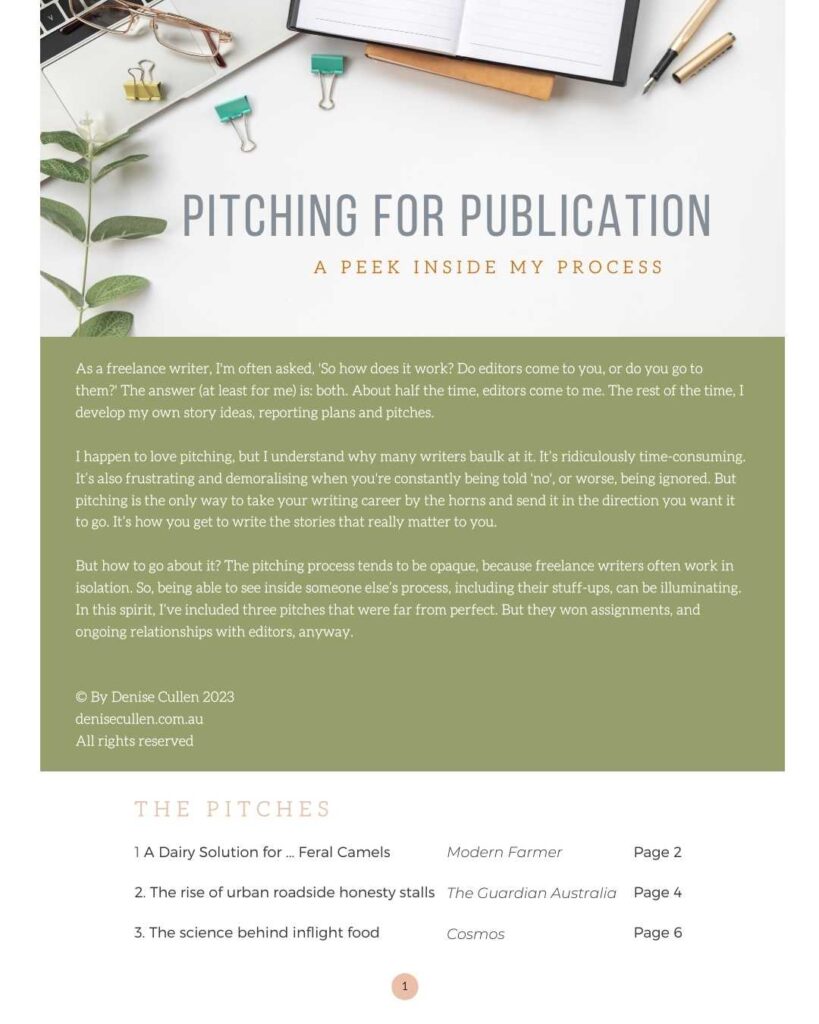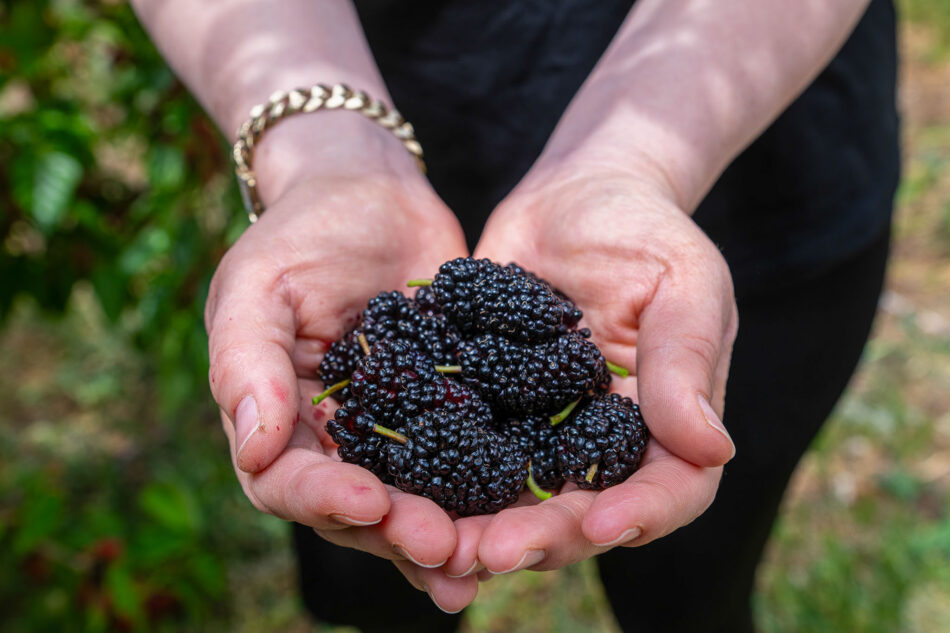It’s mulberry season again.
Seemingly overnight, the spindly, bare-branched skeleton in my backyard has transformed into a lush-leafed tree brimming with deep purple berries that inevitably stain fingers and faces.
Just as suddenly, I know, the harvest will end, leaving little but a brief memory of abundance.
It occurred to me that freelance writing is a lot like this.
It often follows a feast or famine pattern, with too much to do one month, and not enough the next.
Three editors reach out in a single day, then there’s a month where your emails go unanswered.
You barely have enough time to do laundry between trips, then you’re going nowhere for weeks.
You’re irritated that your phone keeps ringing – and more irritated when it doesn’t.
Boom or bust
The uncertain freelance writing landscape contributes much to this situation.
Client budgets operate according to mysterious cycles; companies approve content in batches; external events create unpredictable waves of demand that ebb and flow; and economic shifts can cause opportunities to dry up across the board.
Many writers, including me, also inadvertently contribute to these boom-or-bust cycles.
When work is plentiful, I tend to focus entirely on execution, neglecting the marketing and relationship-building activities that generate future opportunities.
This sometimes means that when current projects end, it’s suddenly a scramble to find new ones.
Treating freelance assignments as a series of isolated transactions rather than an ongoing business relationship can amplify the feast-or-famine seesaw.
Writers who think project by project miss opportunities to nurture long-term client partnerships that provide steady work streams.
Six strategies for year-round abundance
Successful freelancers can learn a lot from smart farmers when it comes to shoring up their livelihood.
Diversify your publication or client portfolio
Just as farmers diversify the crops they grow, tend to the health of their soil year-round, and develop preservation methods to extend their harvest’s value, freelance writers must adopt similar strategies to create consistent income streams.
It’s oh-so-easy to stop marketing efforts when the work is flowing free and fast, but it’s one of the biggest mistakes freelancers can make.
That’s because even the sweetest gigs don’t last forever. Your favourite editor moves on. The sole media outlet you contribute to collapses. Publishing priorities shift.
If you’re relying on just one publication or client to pay your bills, you are vulnerable.
Set aside specific times each week or month for networking, pitching, and relationship maintenance, regardless of your current workload.
Automate where you can through email sequences, social media scheduling tools, and content repurposing strategies.
Your goal is to maintain visibility and currency – even when you’re heads-down on client work.

Managing abundance overwhelm
When mulberries ripen, they do so all at once, and they don’t keep long.
For a few frantic weeks each year, I find myself frantically making jam, freezing fruit, and doing the rounds of neighbours, friends, and the local food swap, to offload the surplus before it spoils.
As a freelancer, it’s just as important to develop systems for managing workflow surges.
Failure to do so can lead to shoddy work, burnout, or a bad reputation.
(Are you a travel writer? For tips on beating burnout, read this.)
Create templates, checklists, and streamlined processes for common project types.
Build a network of trusted subcontractors to whom you can turn during periods of overwhelm. (Tip: You’ll often find overflow callouts in Rachel’s List.)
Outside your workday, look at where you can simplify, delegate, or otherwise offload tasks that could free up additional time in the short term.
And be prepared to say ‘no’ when one more straw will cause you to snap.
You could also consider packaging services differently during high-demand periods – or charge premium rates for rush jobs.
(Read How to find time to be creative when you’re stretched to snapping point.)
Invest in professional tools
Serious mulberry harvesters invest in proper storage containers, fruit picking poles, and collection sheets.
In the same way, the right equipment can make all the difference between amateur fumbling and professional efficiency.
Auditing your freelance toolkit annually ensures you’re investing in tools that multiply your efficiency rather than just making work marginally easier.
Some of the tools I can’t live without include:
- Zoom (Pro plan, as my interviewees typically talk for more than 40 minutes.)
- Otter (Pro plan.)
- LinkedIn Premium
- Adobe Creative Cloud
- Subscriptions to publications I write for (or would like to)
Depending on your needs, consider subscriptions to research databases, project management software, or design tools.
If in doubt, calculate the return on investment of tools you’re thinking about, to see if they might pay for themselves in time savings.
Don’t allow a lack of the right resources become a barrier to your creativity.
Reach for premium opportunities
There will always be an abundance of mulberries on the low-hanging branches.
But the sweetest fruits tend to hang up high, where they bask in the sunshine, just out of comfortable reach.
In much the same way, the best-paying freelance opportunities often demand that you stretch beyond your current skills level and comfort zone.
No judgment implied, but I see lots of even very experienced writers wasting too much time with the low-hanging fruit.
By that, I mean the low-profile publications, the clients who pay a pittance (or ‘in exposure’), the editors who accept your work but then fail to publish it for ages, meaning it’s years till you get paid.
Identify the high-hanging fruit in your industry – the publications, clients, or project types that intimidate you slightly.
Invest in the ladders you need, whether that’s investing in an event your dream editor is attending, gaining specialist knowledge to write about a new subject, learning how to use premium tools, or simply cultivating the chutzpah to pitch for a new-and-improved opportunity in the first place.

Embrace productive chaos
Mulberry picking – just like freelance writing or jam making – is inherently messy.
Projects expand beyond their original parameters (scope creep), requests for ‘quick changes’ multiply exponentially, and multiple clients declare ‘emergencies’ on the same day.
(These are my problems for this week. What are yours?)
Build buffers into your systems to accommodate the inevitable messiness.
For example, when scope expands, I quickly get the cursing out of the way and try to move towards framing it as an opportunity to provide more value.
Sending a friendly email outlining the additional work and proposed amendments to the timeline or compensation is sometimes all it takes.
It’s also wise to build scope creep clauses into every new agreement, along with specified limits to the number of revisions you’re willing to undertake, along with a definition of ‘urgent’.
(In the meantime, you might want to learn more about red flags in Halloween reading for writers.)
Building strong business and creative instincts
Experienced fruit pickers immediately recognise perfectly ripe mulberries from those which are starting to turn to mush or, alternatively, still tart.
Freelancers need to develop similar instincts for business situations – knowing when to push back with clients, when work is good enough to submit, how much to raise rates, and whether you’re targeting an idea or issue while it’s overdone, or (my personal challenge) ‘too green’.
Document your decision-making patterns to accelerate intuition development, by keeping notes on what made past projects successful or problematic.
Seek mentorship from experienced freelancers who can help calibrate your instincts.
Tip: The Australian Society of Travel Writers (ASTW) has recently introduced a great mentoring program that I participate in as a mentor. It’s free if you’re a member.
And trust your gut when something feels off about a potential client or project.
Experienced pickers rarely second-guess their ripeness assessments.
In time, you’ll learn to spot the red flags early on.
I wish you an abundant, year-round harvest.
Over to you … which tip will you take with you into what remains of the year?
While you’re here …
I warmly invite you to subscribe to my newsletter. You’ll receive writing tips every fortnight, breaking news on courses currently under development, and a FREE copy of Pitching for Publication, which deconstructs three successful pitches to Australian and international editors.

